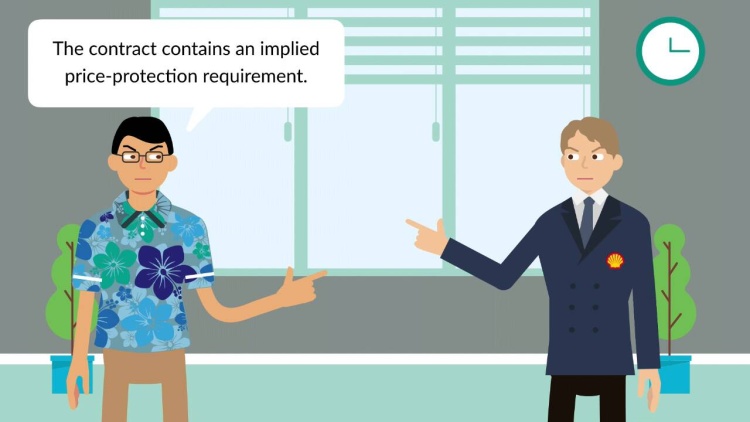Nanakuli Paving & Rock Co. v. Shell Oil Co.
United States Court of Appeals for the Ninth Circuit
664 F.2d 772 (1981)
- Written by Matt Fyock, JD
Facts
Nanakuli Paving & Rock Co. (Nanakuli) (plaintiff) entered a contract with Shell Oil Co. (Shell) (defendant) to supply asphalt to Nanakuli. The contract set the price as the price posted by Shell at the time of delivery. For several years Shell maintained the initial price for Nanakuli. Shell later increased the price in a letter giving Nanakuli one-day notice of the change. Nanakuli brought a breach-of-contract suit, claiming that the contract contained an implied price-protection requirement, which was a customary trade practice in the Hawaiian asphalt industry. Shell countered that no such customary trade practice existed and that the contract terms controlled the price. Nanakuli argued that even if price protection was not a term of the contract, Shell did not exercise good faith by giving only a one-day notice of the price increase. The jury ruled in favor of Nanakuli. The jury found that Shell breached the contract by failing to offer price protection. The jury also found that Shell did not exercise good faith due to its failure to provide advance notice of the new price. Shell filed a motion notwithstanding the verdict, and the district court set aside the verdict. Nanakuli appealed.
Rule of Law
Issue
Holding and Reasoning (Hoffman, J.)
Concurrence (Kennedy, J.)
What to do next…
Here's why 910,000 law students have relied on our case briefs:
- Written by law professors and practitioners, not other law students. 47,100 briefs, keyed to 997 casebooks. Top-notch customer support.
- The right amount of information, includes the facts, issues, rule of law, holding and reasoning, and any concurrences and dissents.
- Access in your classes, works on your mobile and tablet. Massive library of related video lessons and high quality multiple-choice questions.
- Easy to use, uniform format for every case brief. Written in plain English, not in legalese. Our briefs summarize and simplify; they don’t just repeat the court’s language.





